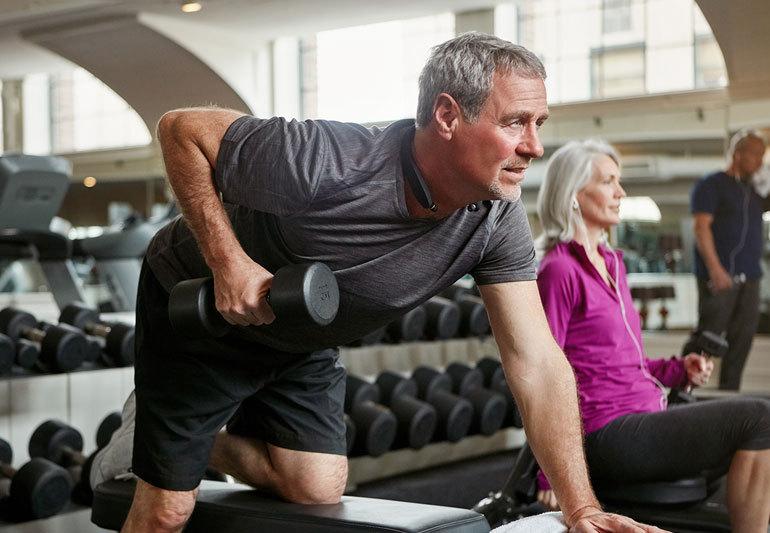

As you age, losing and maintaining a healthy weight becomes increasingly critical for your well-being. Shedding those extra pounds helps you maintain a healthy weight, which reduces the risk of chronic illness and injury, enhances mobility, and embraces an active, vibrant lifestyle in your golden years.
While it is easy to lose weight during middle age, losing weight when you are over 50 can be more challenging. This is because your body undergoes significant changes, such as slow metabolism and hormonal changes, that make losing those extra pounds a formidable challenge.
Although it may be challenging to lose weight when you are over 50, it’s still possible with the right strategies to lose and maintain a healthy weight. This article details the common challenges hindering you from losing weight and tips and techniques for overcoming these challenges to achieve your weight loss fitness goals.
Challenges for Losing Weight for People Over 50 Years
Losing weight at any age can be a challenging endeavor, but for individuals over 50, there are specific obstacles that can make the process even more demanding. These include the following:
1. Slower Metabolism
Metabolism is very crucial for weight loss. If your metabolism is high, your body will burn more calories during the workout and rest, creating a caloric deficit needed for weight loss.
Metabolism tends to slow down with age, making the body burn fewer calories at rest and during exercise. This makes it challenging to create a calorie deficit, which is essential for weight loss, hindering weight loss.
2. Muscle Loss
Sarcopenia, the age-related loss of muscle mass, is a common issue for older adults. The older you grow, the more muscle mass and strength you lose.
With less muscle, the body burns fewer calories and stores the rest as fat, which further contributes to weight gain or makes it harder to lose weight.
3. Hormonal Changes
Hormone changes pose challenges in weight regulation for both men and women over 50 because they help in metabolism, which is essential in weight loss.
During menopause, women experience hormonal changes, such as a decline in estrogen hormone and an increase in androgen. Men also experience a decrease in their testosterone levels as they age. These hormonal fluctuations increase fat storage, especially in the abdominal area, making it difficult for weight loss at 50 years.
4. Reduced Physical Activity
Older adults tend to be less physically active due to various factors, including illness, fatigue, and joint problems.
When you are inactive, your body burns fewer calories at rest. The fewer calories you burn, the more weight you gain since the body stores the remaining calories as fat.
To promote weight loss at over 50, stay active by doing low-impact exercises or activities that are enjoyable to help you burn more calories at rest so that you can promote weight loss.
5. Chronic Health Conditions
As people age, they may be more likely to have chronic health conditions such as hypertension, diabetes, or arthritis. These conditions can affect physical activities and overall weight loss efforts.
For instance, a person with arthritis may experience knee pain that will cause them not to work out. They will require careful management Instead.
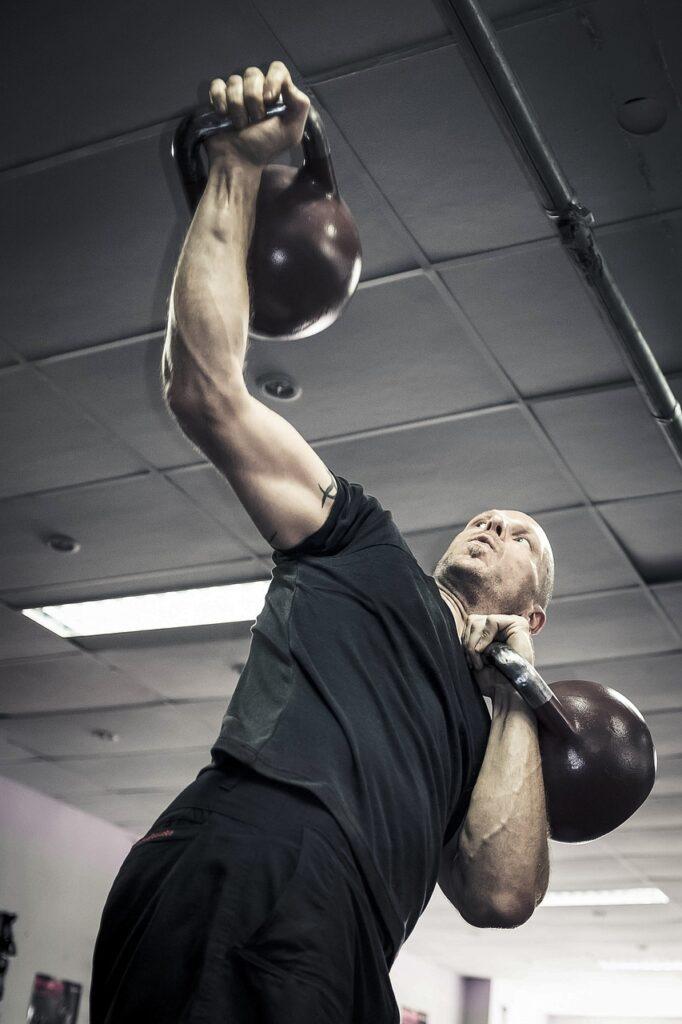
Top 14 Best Ways to Lose Weight After 50 Years
Below are the 15 best ways to help you shed those extra pounds after turning 50:
1. Be More Active Throughout The Day
A sedentary lifestyle is most common in our lives, and most people, including people over 50 years old, like it. However, a sedentary lifestyle, such as sitting for long hours without taking a break, might obstruct your weight loss effort and contribute to the development of obesity and cardiovascular diseases.
Weight loss primarily depends on maintaining a caloric deficit (burning more calories than you consume). Staying active throughout the day by taking short breaks of 15 minutes every hour can significantly contribute to burning more calories than you consume, which is a critical principle for losing weight.
2. Prioritize Strength Training
As you age, you lose muscle mass. In fact, according to research, at the age of 50, your muscle mass tends to reduce by approximately 1% to 2%, while muscle strength decreases at a rate of 1.5 to 5% per year.
The decline in muscle mass can slow your metabolism, making it challenging to burn calories, contributing to weight gain and difficulty losing weight.
Strength training exercises, such as lifting weights, help preserve and build muscle mass and strength, which boosts metabolism, allowing you to burn more calories than you consume and ultimately leading to weight loss.
If you find it hard to perform a strength training workout due to chronic pain, injury, or lack of enjoyment, try blood flow restriction training. It is a fitness technique that temporarily restricts blood flow to the muscles being worked during exercise by using specialized BFR cuffs or wraps, which are applied to the arms or legs. It stimulates muscle growth similar to traditional resistance training but using much lighter loads.
3. Get Quality Sleep
Sleep is critical to overall health, including weight loss and management, as it regulates the hormones that influence metabolism and appetite.
When you don’t have enough sleep, your body reduces the production of the leptin hormone, which signals fullness and helps control your appetite. It also increases ghrelin, a hormone that stimulates hunger.
Reduced leptin levels can make you hungrier and increase your food intake, while elevated ghrelin levels can make you crave high-calorie, carbohydrate-rich foods, leading to overeating, which may cause weight gain.
Make sure you get enough quality sleep by aiming for 7-9 hours of quality sleep at night to lose weight.
4. Limit Added Sugar Intake
Added sugar foods such as cookies, sweetened beverages, and cakes provide empty calories, contributing to your daily calorie intake without providing essential nutrients or satiety. Consuming a lot of them can increase your calorie intake and cause overeating, which promotes weight gain.
Consume fewer calories to reduce calorie consumption, sugar cravings, and overeating. It will make it easier to stick to a calorie-restricted diet necessary for weight loss.
Since sugar is added to most food items, always read the ingredients label to know what it contains before buying. Look for commonly added sugar or sweeteners such as high-fructose corn syrup and agave.
5. Eat More Protein Foods
As mentioned earlier, muscle mass and strength loss decline as you age. This causes a reduction in metabolic rate and the amount of calories you burn, making it challenging to lose weight.
Adding quality lean protein to your diet can promote weight loss and reverse age-related muscle mass loss. Studies suggest that high protein can help reduce body weight by preventing muscle loss and preserving it for a while.
Add high-quality protein foods such as chicken breast, fish, eggs, and lean meat daily to your diet.
6. Consume More Fruits and Vegetables
Fruits and vegetables are low in calories while high in nutrients like vitamins, minerals, and fiber necessary to your overall health. You can fill up on these foods without consuming excess calories, making it easier to maintain the caloric deficit required for weight loss.
Fruits and vegetables also have dietary fiber, which increases feelings of fullness and reduces overall calorie intake. Fiber also regulates blood sugar levels and supports digestive health, preventing overeating and consuming unhealthy snacks, leading to weight loss.
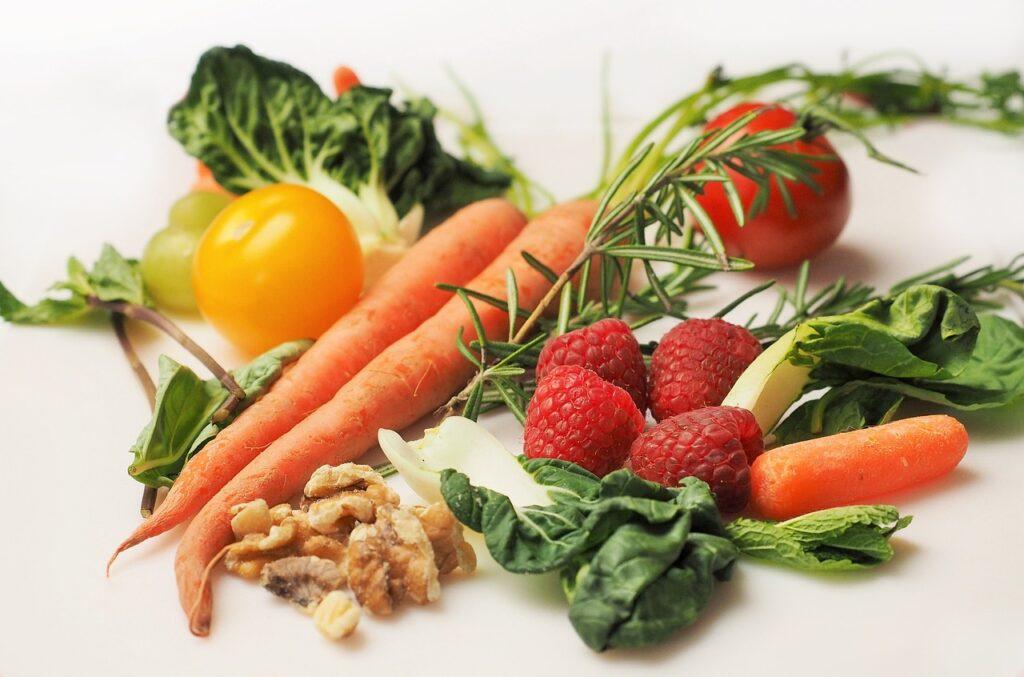
7. Go For Whole Grain Diet
As you age, your body requires more nutrients to support metabolic processes and physical activities and maintain muscle mass.
Whole foods, such as fruits, whole grains, lean proteins, and healthy fats, provide essential nutrients like vitamins, minerals, antioxidants, and fiber to help manage and lose weight.
8. Be Mindful While Eating
Often, most people eat while watching television, playing games on their phones, or talking, making them unable to concentrate on the food they are eating. Focusing on something other than your food while eating can make you consume more food than your body requires, leading to weight gain.
Mindful eating encourages you to pay closer attention to your food and savor every bite. This can increase satisfaction with smaller portions, reducing overall calorie intake, potentially leading to weight loss and promoting your fitness goals.
9. Pair Up With A Buddy
Working out daily or sticking to a healthy diet alone can sometimes be challenging. Having a team or workout buddy with whom you share the same challenges and fitness goals provides emotional support and makes the process more enjoyable and less lonely. This encourages you to stick to your plan of weight loss.
Teaming up also helps you maintain a consistent workout schedule. You’re likely to stick to your exercise routine, which is crucial for long-term weight loss and muscle-building success.
10. Reduce Stress
Stress is linked to increased food cravings and consumption of food. It triggers the release of cortisol hormone, which increases appetite, causes insulin resistance, and reduces metabolism, causing weight gain, especially around the abdominal area.
Additionally, stress often disrupts sleep patterns, slowing metabolism and appetite regulation and promoting weight gain.
To counteract these effects, reduce stress levels. Lowering stress helps you regulate cortisol levels and improve sleep quality, helping you maintain a healthier weight.
11. Set Realistic Weight Loss Goals
Setting an unrealistic goal can lead to disappointment and frustration when it’s not achieved. This can be demotivating and may even lead to giving up on the weight loss journey.
Set smart and realistic fitness goals to help you make gradual, sustainable changes to your lifestyle and diet and allow your body to adjust without causing undue stress.
The goals should encourage you to focus on overall health rather than just achieving a certain number on the scale or promoting rapid weight loss or extreme dieting.
12. Take Healthy Snacks and Supplements
As you get older, the ability of your body to absorb certain nutrients from food declines. For instance, studies show that adults over 50 are often deficient in vitamin B12 and folate, essential nutrients needed for energy production.
Deficiency in vitamin B12 can negatively affect your mood and cause fatigue, hindering your weight loss goal.
Consume healthy snacks such as nuts and nutritional supplements such as creatine to boost energy and high-quality B-complex vitamins to reduce Vitamin B12 deficiency.
13. Track Your Daily Weight Loss Steps
Tracking your daily steps and habits using various tools such as a pedometer and journal is critical for your weight loss journey.
For instance, tracking your daily caloric expenditure can estimate the number of calories you burn through physical activity. This information can help you adjust your caloric intake accordingly to create a caloric deficit, which is the foundation of weight loss.
Keeping track of your progress also encourages you to be more active and maintain consistency in your exercise routine. Additionally, when you track your steps, you’re more likely to hold yourself accountable for reaching your daily activity goals.
14. Hire a Professional Trainer
Hiring a professional trainer is crucial to losing weight and maintaining a fit physique at 50 years.
A fitness trainer teaches you the correct form for various exercises, helping you avoid injury and maximize the benefits of each movement.
A professional trainer will also customize your workout plan by assessing your current fitness level, your goals, any existing medical conditions, and your specific needs as a bodybuilder over 50.
Conclusion
The journey to lose weight over 50 may present its fair share of challenges, but armed with the proper knowledge and effective strategies for weight loss, it’s a journey well worth embarking on.
Embracing a balanced diet, staying active with exercises tailored to your needs, and mindful eating are all critical components of achieving sustainable weight loss and staying fit in your 50s and beyond.
So, let’s not allow age to limit your potential. Invest in your future self by trying these tips and strategies.






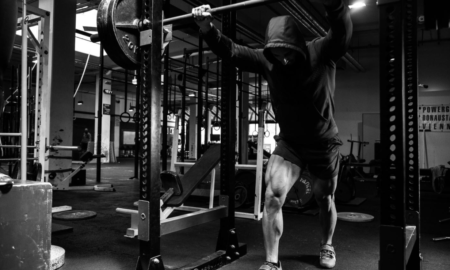








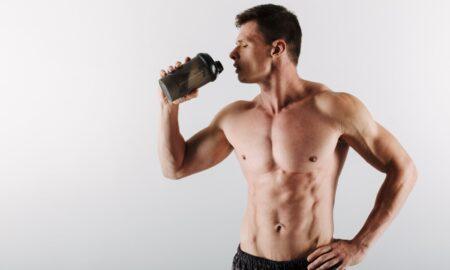





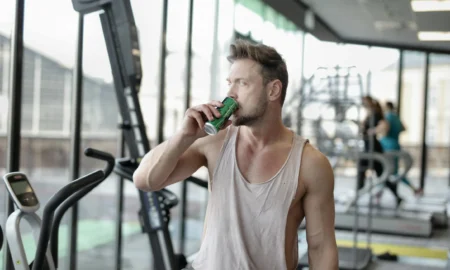
You must be logged in to post a comment Login